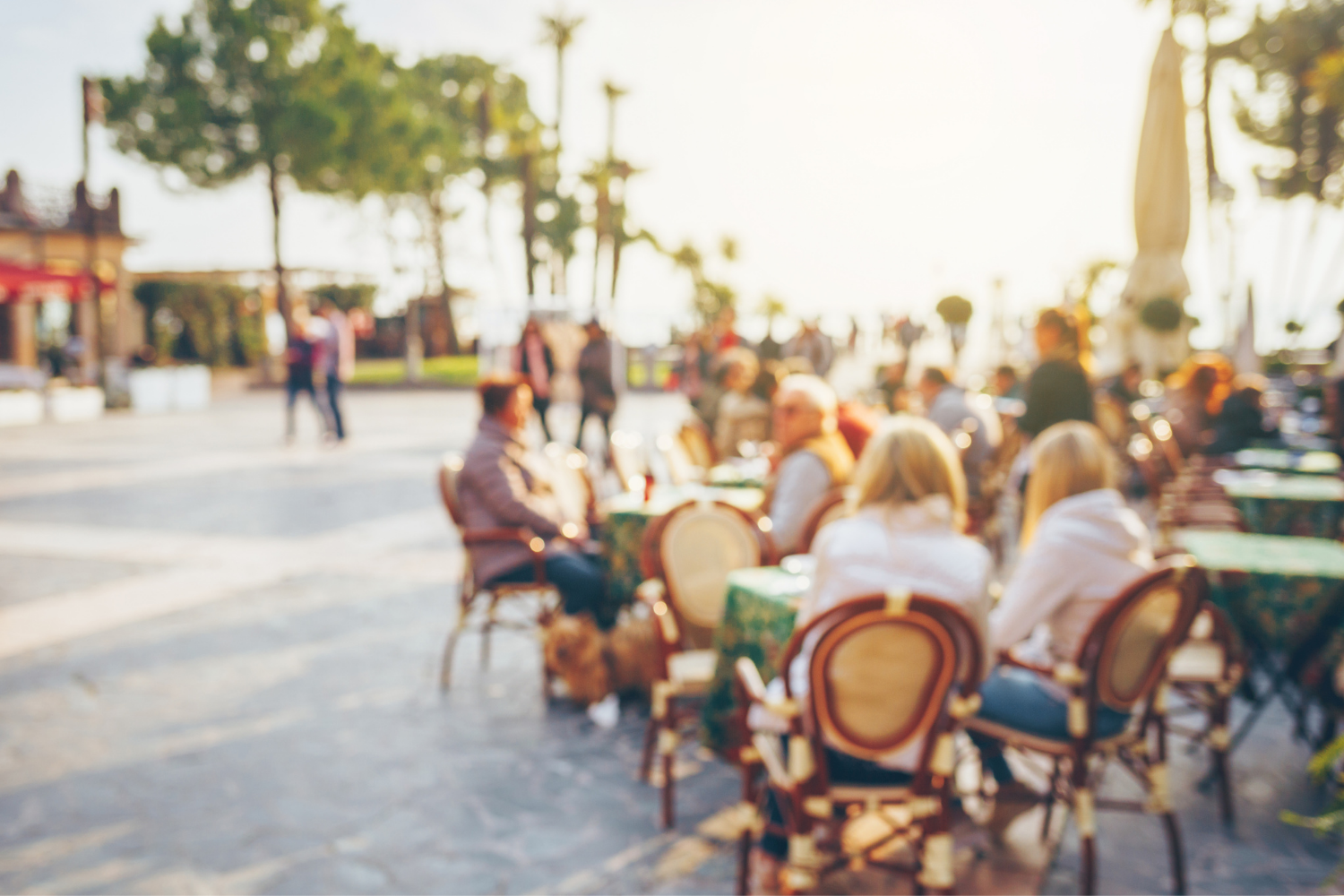The Nope: Honoring and Communicating Boundaries During COVID
According to Instagram, everyone is having a beautiful end to the summer. Everyone’s on a hike. Everyone’s dining at an appropriately-spaced outdoor restaurant table. Everyone’s moved on from baking their own bread and is back to buying loaves from the farmer’s market. (Everyone’s taking a selfie holding said loaf while wearing an adorable floral facemask.)
“You’ve got to try the pizza place across the street,” someone said to me the other day. “They’ve converted their whole parking lot into an outdoor garden café!”
But when I walked over, considering maybe it could be time to venture out a bit more, the café looked…too people-y. My stomach clenched. I pinched my ugly medical mask closer to the bridge of my nose. I turned around and walked the other way. Maybe they’re on GrubHub, I thought.
Tyler Calder from the Girls’ Night In newsletter calls this feeling “the NOPE”--the moment you make a plan for some joy-despite-COVID, only to arrive at your destination and it doesn’t feel safe.
Have you had those moments? You drive to the beach, but the towels are NOT six feet apart? You want to pop into a store to run a quick errand, but there’s a line of people around the block? You try to escape to nature, but everyone else had the same idea, and instead of feeling calm, you feel anxiety and panic rising in your chest?
NORMALIZE THE NOPE: INSTAGRAM VS. REALITY
Calder gives us a good reminder:
“For every beach picture or sunflower field you’re scrolling past right now, there are likely countless agonizing decisions or failed plans you’re not seeing. There’s the mental gymnastics we do every time we try to plan a safe activity outside. There's the declined invitations to a small something fun on a Saturday. And there are the big, heart-tugging NOPES, like not being in a friend’s wedding or not being able to meet a loved one’s new baby…By normalizing the nopes, we open the door to talking more honestly with friends and loved ones about our boundaries and the things that make us uncomfortable.”
Social media never tells us the whole story. Some people use their posts to put a branded façade over their personal struggles. Others may have gotten lucky and the beach did feel safe that day. And other people may just have a different “NOPE” threshold than you do.
SPEAK OPENLY ABOUT YOUR BOUNDARIES
A comfortable outing for your friend might be a hard “NOPE” for you. And that’s okay. Everyone’s set of circumstances and risk calculations look a little different these days. You’re not required to give a reason for declining an invitation or arriving somewhere and then deciding to bail.
But also remember that your friends and family may be pushing through your boundaries because they don’t know what they are. Setting expectations and communicating your COVID deal-breakers might go over smoother than you think.
As much as I want to see your partner and child, I’m only comfortable meeting one-on-one right now.
When we meet, I’d like us to wear masks and keep the windows open.
It looks like rain, and I’d prefer we stay outside—can we reschedule for next week?
I’m high-risk and taking extra precautions. Let’s plan a time for a phone call instead.
We’ve got state and local government guidelines. We’ve got advice from the CDC. But we don’t have a rulebook defining what, for us personally, is safe or feels safe. Just because your gym is open doesn’t mean you’ll feel comfortable going back. Listen to your inner “NOPE” when it speaks, and let others know your boundaries, too.
REFRAME YOUR IDEA OF A “PLAN”
I spent two years living in Saudi Arabia, where businesses close five times a day for prayer. Regular hours aren’t usually posted online, and many shops don’t have actual street addresses. (Think “the store is on Main Street between First Avenue and Second, just past the camel blanket shop” for directions.)
My colleague and I were responsible for planning events and outings to orient newcomers to the country. Every week when we’d load up the bus, my colleague would stand at the front with a microphone, like a tour guide:
“Okay, everyone! Here’s the plan: we’re going to go to the café, get our orders placed before prayer time, and be back on the bus by 1PM! Of course, the restaurant might be closed...if we can find it. We might get there and have to turn around and come back. Or we could hit traffic and arrive during prayer time and have to wait half an hour to get in. It’s not really a plan…it’s an adventure!”
It’s not really a plan—it’s an adventure.
Alongside communicating expectations and boundaries to those around you, it may be helpful to do some additional expectations management for yourself. Reframe your idea of a “plan” to include the possibility of a “NOPE”…but also the possibility of an adventure. Because who knows. The beach might be a “NOPE,” but the ice cream stand nearby could save the day.
It’s all well and good to be open to an adventure when you’ve signed up for it—when you move to a different country, for instance, you expect for things to be unpredictable. But no one signed up for a pandemic. It’s normal to feel disappointed or angry when your plans end in “NOPE,” especially because plans take so much more effort to make these days.
Be kind to yourself. Though it may not feel like enough, it’s really admirable that you are putting in the effort to create a good experience during these uncertain times. When your trip to the pizza place ends in “NOPE” instead of a cute Instagram photo, remember that intention is also worthy of notice. The intent to be outdoors. The intent to nourish your body (yep, I just called pizza nourishment). The intent to celebrate the good things that remain in our struggling world.


